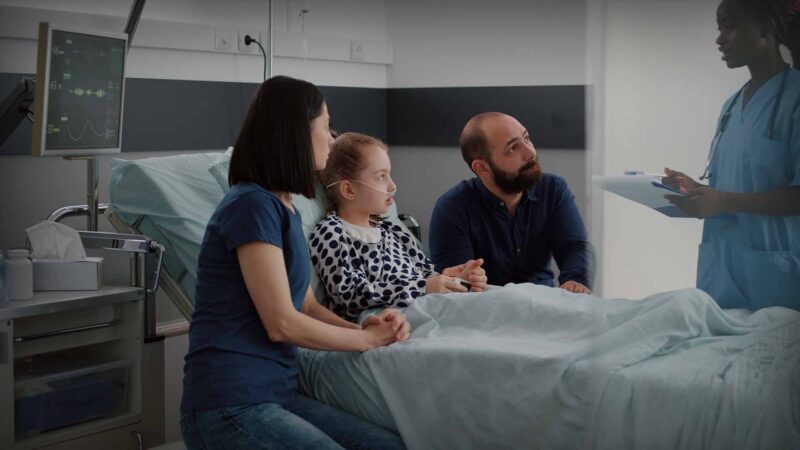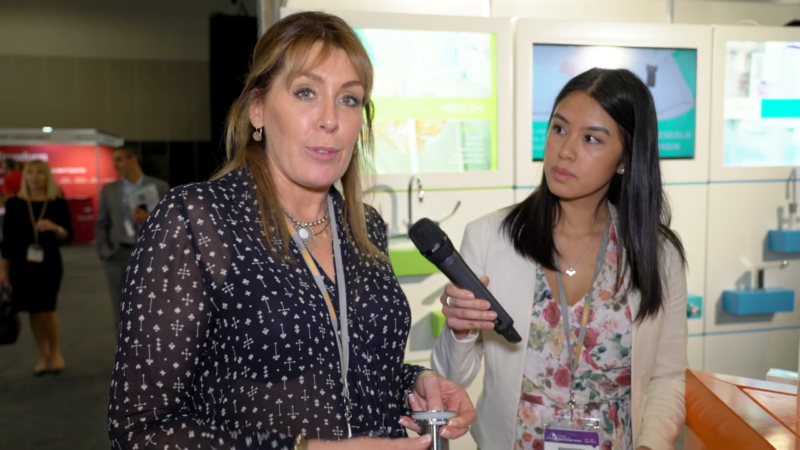DIARY OF A PARAMEDIC IN A PRIMARY HEALTH CARE CLINIC Examining the attributes and practices of paramedics working in primary health care contexts
With
Alecka Miles, Lecturer
Edith Cowan University, Western Australia &
Community Paramedic,
Dianella Family Medical Centre, Western Australia
PEOPLE IN HEALTH CARE SEGMENT
Filmed in Perth, Western Australia | October 2025
Alecka Miles is a lecturer at Edith Cowan University and works as a paramedic in a multidisciplinary team at Dianella Family Medical Centre in Metropolitan Perth, Western Australia.
Community paramedic roles have a history in Australia, dating back to 2007 in New South Wales and followed by similar initiatives in South Australia and New Zealand. Alecka’s position emerged after she sought to evaluate how paramedics could integrate into general practice, ultimately leading to a job offer post-COVID lockdown in 2020. Her skills, particularly in cannulation, proved valuable as healthcare shifted towards primary care.
In her role, Alecka conducts community health assessments, providing insights from her paramedic background. She notes a significant learning curve, having expanded her role far beyond her initial experiences in ambulance services.
Alecka’s research aims to explore the practices and demographic characteristics of paramedics working in primary healthcare contexts in Australia and New Zealand.
At Dianella, she collaborates with nurses and other healthcare professionals, emphasising patient-centred and holistic care. Their teamwork is characterised by mutual respect and recognition of each other’s strengths, fostering a supportive environment for managing both urgent care and chronic disease management.
Australian Health Journal spoke to her about her day to day experience in general practice.
Source: Written from transcript
Footage credit: ACPIC24, Australasian College of Paramedicine
You Might also like
-
App helps Chronic Sleep Deprivation
Earlier this year, Turner Institute for Brain and Mental Health researchers developed SleepSync, the world’s first app that personalises sleep-wake cycles for shift workers to improve their sleep and overall mood.
The research, led by Dr Jade Murray, was published in the journal, Digital Health. Australian Health Journal met with Dr Murray to hear how the application has evolved and been used in personalisation of sleep habits for health care shift workforce.
-
Shaping Health, Advancing Nursing through training, upskilling & scholarships
The Chief Executive Officer of Australian College of Nursing, Adjunct Professor Kylie Ward FACN spoke in depth with Australian Health Journal about:
The key recommendations in ACN’s pre-budget submission to Federal Government
The impact of legislation requiring a Registered Nurse (RN) at every residential aged care facility from 1st July 2023
Why scholarships in nursing leadership are important
Why ACN has recommended the Government fund 200 Pacific nurses in 15 nations for the online ACN postgraduate certification
The need for a multi-pronged approach that includes skilled migration in rebuilding the nursing workforceIn the lead up to the Australian Federal Budget in May 2023, Australian Health Journal reached out to peak health industry bodies to hear about their priorities, either noted in pre-budget submissions lodged with Federal Government in January 2023 or in recent forums such as the Strengthening Medicare Taskforce.
-
AHW Exhibitor: Gentec Australia
Gentec Australia, an Australian supplier of tapware and designer of wash basins to the healthcare industry exhibited at last week’s Australian Healthcare Week 2019. Their patented basin design reduces the risk of infection through splashing from water through an offset waste, as well as other infection control features. Know My Group reporter Anne Dao spoke with General Manager for Sales Graeme Bunt and State Manager (VIC) Vanessa Beever.
In an upcoming segment Australian Health Journal will cover the technologies deployed and steps taken by hospitals and clinics in infection control.
Post Views:
2,237



